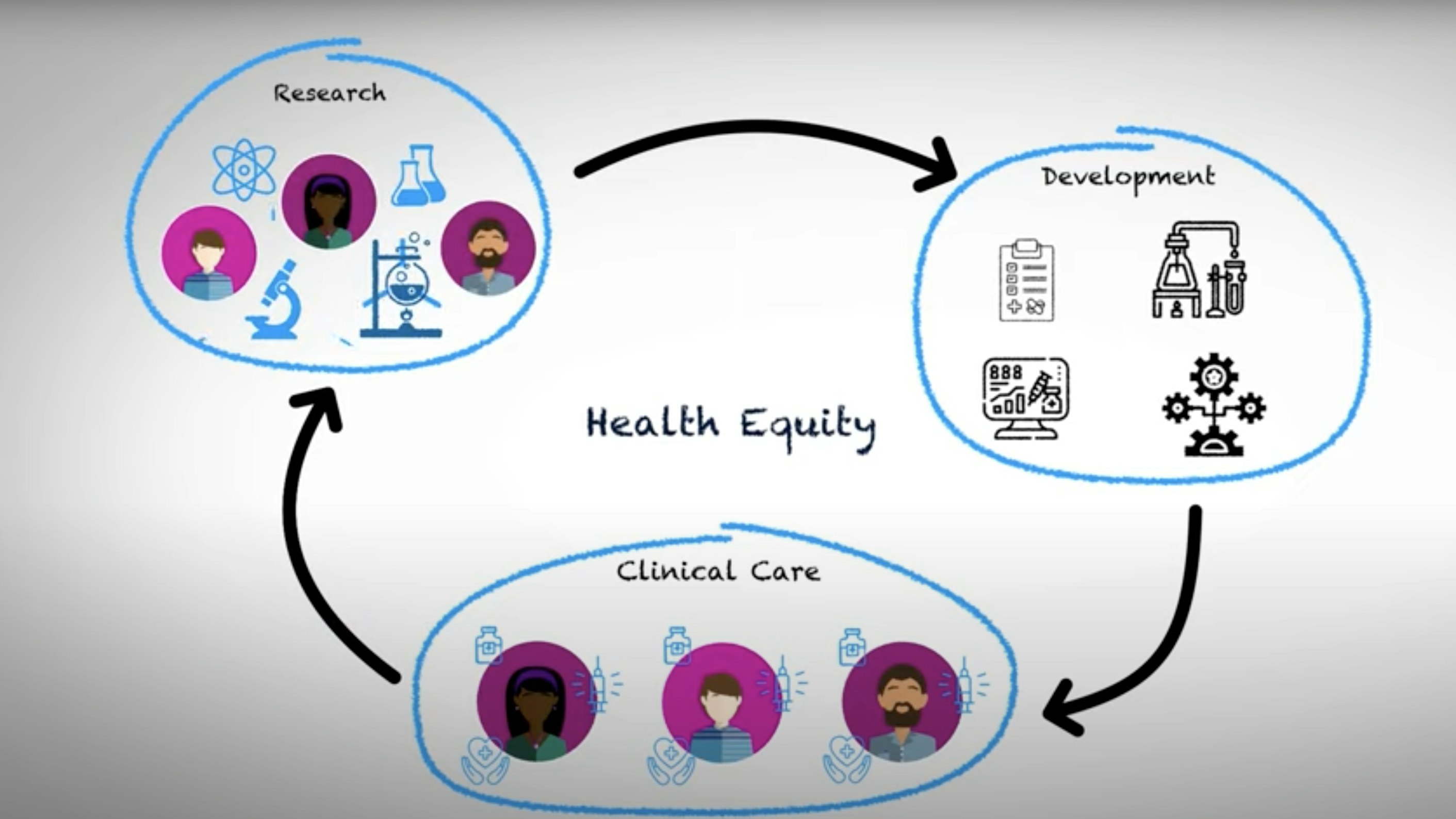
By Aida Habtezion, Chief Medical Officer, Pfizer
I took on the role of Chief Medical Officer at Pfizer at the start of 2021 – remotely, on the opposite coast, and in the middle of the Covid-19 pandemic. Many have asked why I would take the risk to join industry at such a time when I’m a tenured endowed professor with an established and upward career trajectory at Stanford University’s School of Medicine. But I’ve always been driven to explore new opportunities, especially in challenging times. When this opportunity came about, I saw it as the chance of a lifetime to make an impact far beyond what I was doing in my clinical practice and research laboratory.
I was at a stage in my career where my attention was shifting to focus more on unmet needs, with the desire to strengthen the link between bench-to-bedside and bedside-to-bench relationships, also known as “translational research”. As a physician-scientist, I am passionate about research and patient care, and the opportunity of being at the bench and the bedside at the same time. I believe that if we understand the mechanisms of diseases, we can better understand disease pathways, develop better targets, and not only to treat diseases, but hopefully even to cure them.
I’ve witnessed first-hand the profound impact that inclusion can have in ensuring that those in need get the care they deserve. The Covid-19 pandemic has laid bare long-standing evidence that poor diversity in early- and late-stage medical research undermines health equity. Ensuring diversity in R&D is a key component in helping to achieve health equity and reducing disparities in healthcare. Race, ethnicity, age, sex, environment, and other social determinants of health can all impact how different people respond to the same medicine or vaccine. This is why inclusivity, starting at the earliest phases of research, is so important. The more diverse we can make every stage of the research process – from ideation to implementation – the more we can learn about the safety and efficacy of a potential medicine or vaccine for people who have characteristics like those of the trial participants.
In pursuit of a more equitable and inclusive R&D process and pipeline, Pfizer launched the “Institute of Translational Equitable Medicine” or ITEM in late 2021. Our vision for ITEM is to achieve health equity by preventing, treating, and identifying disease drivers that disproportionately impact underserved and minority populations nationally and globally. We believe there are gaps in applying scientific knowledge to diseases, and inefficiencies in recognizing unmet clinical needs that ought to be informed by fundamental research. Our goal is to use data to help us understand the drivers of health inequities, and how our scientific discoveries can meet the needs of underrepresented and minority patients.
ITEM’s activities span three key dimensions: research, development, and medical activities leveraging science, data, and translational expertise to close gaps in health disparities. Through this initiative we strive to integrate equity across our end-to-end development pipeline, by delivering on the following key objectives:
- Directing our research to understand the root cause of healthcare disparities in diseases across our development portfolio
- Identifying new targets of diseases that are inclusive of underrepresented minorities, and for the benefit of all populations
- Amplifying precision medicine by including minorities and identifying root causes of disparities
- Collaborating with colleagues across Pfizer to enhance key initiatives focused on patient centricity, health equity, and social determinants of health
- Engaging and partnering with the communities that are most impacted by the inequity
ITEM’s first official program was to address the gap in data on health disparities at the bedside where daily decisions are made about preventive and therapeutic interventions for individual patients with specific health conditions. Information about differences between groups in the natural history of disease, prognosis, responses to available treatments, and potential for adverse outcomes is not readily accessible, and too rarely informs treatment guidelines or reviews used most by practitioners.
To address this gap in accessible and specific information, Pfizer undertook a targeted literature review of disorders in our current pipeline. The 38 diseases included metabolic disorders, cancers, inflammatory conditions, dermatologic disorders, rare diseases, and infectious targets of vaccines under development. The outcome was a “heatmap” of health disparities across race and ethnicity. We used a visual map to evidence differences in both frequency of occurrence and severity of diseases, comparing Black/ African Americans with non-Hispanic Whites (NHW) and Hispanics with NHW populations. Through this heatmap, we illustrate a pathway by which similar and extended information could be gleaned for every medical condition under care in the U.S.’s highly diverse population.
To close the gaps in health inequities, we will need a multi-disciplinary approach in collaboration with stakeholders across the entire life sciences and healthcare ecosystem—public and private institutions, governments and non-governmental organizations, patient groups and healthcare providers, pharma/biotech companies and insurance providers.
But we can only claim success if we ensure these advancements truly benefit all patients. Every patient that is suffering from disease is enduring a personal pandemic. And every patient deserves appropriate medical treatment to end their suffering.
___________________________________________________
Pfizer is a 2022 Aspen Ideas: Health underwriter. The views and opinions of the author are their own and do not necessarily reflect those of the Aspen Institute.


